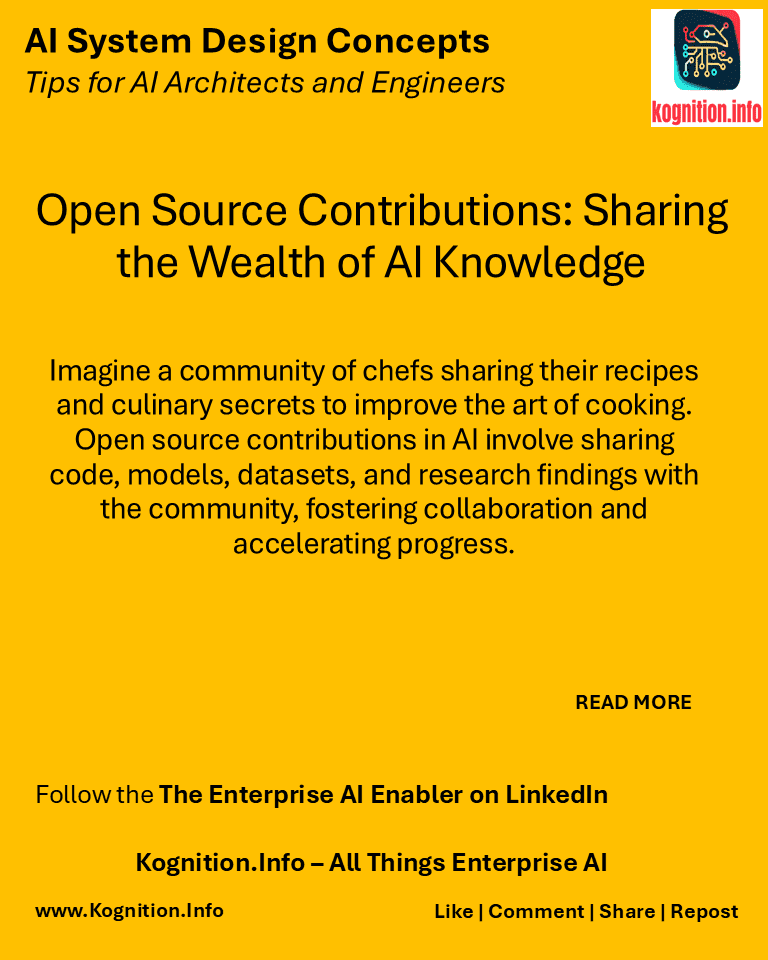
Imagine a community of chefs sharing their recipes and culinary secrets to improve the art of cooking. Open source contributions in AI involve sharing code, models, datasets, and research findings with the community, fostering collaboration and accelerating progress.
Use cases:
- Sharing code and models: Releasing code implementations of AI algorithms and pre-trained models for others to use and build upon.
- Contributing to open-source libraries: Improving existing AI libraries and frameworks by contributing code, documentation, or bug fixes.
- Publishing datasets: Making datasets publicly available to facilitate research and development in AI.
How?
- Choose an open-source platform: Select a platform like GitHub, GitLab, or Bitbucket to host your code and collaborate with others.
- Follow open-source best practices: Adhere to coding standards, write clear documentation, and use appropriate licenses.
- Contribute to existing projects: Identify open-source projects that align with your interests and contribute code, documentation, or bug fixes.
- Start your own open-source project: If you have developed a novel algorithm or tool, consider releasing it as an open-source project.
Benefits:
- Accelerated progress: Fosters collaboration and accelerates the advancement of AI.
- Increased accessibility: Makes AI tools and resources more accessible to a wider audience.
- Improved code quality: Open-source contributions undergo peer review, leading to higher quality code and more robust solutions.
Potential pitfalls:
- Maintenance overhead: Maintaining open-source projects requires ongoing effort and commitment.
- Community management: Building and managing an active open-source community can be challenging.
- Licensing considerations: Choose appropriate licenses that align with your goals for sharing your work.
